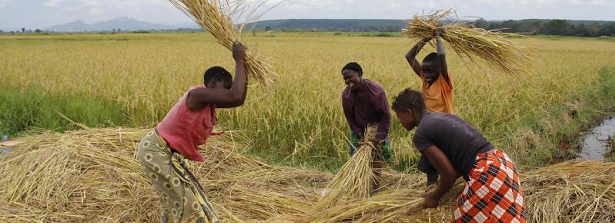
This seminar “Towards inclusive investment & business models for improved land governance and livelihoods” is the tenth in a series of annual seminars on Sustainable forest management in the tropics. It takes place in Ede on September 14, 2017.
Are we on the right track? September 14, 2017 – Smallholders and communities own, use and manage a significant share of the world’s agricultural lands and forests. Their livelihoods largely depend on the resources given by the land, in terms of food security and nutrition, energy supply, income and employment. However, smallholders’ rights to access, control and use land are often insecure, unclear or not respected. Yet, there is a growing group of financial institutions and businesses that are proactively investing to achieve positive impacts on local communities and looking for alternative tenure and business models. In this annual seminar – the 10th in this series – we will share the latest knowledge, experiences and insights with regard to such innovative tenure and business models.
Why this seminar
Smallholders and communities own, use and manage a significant share of the world’s agricultural lands and forests. Their livelihoods largely depend on the resources given by the land, in terms of food security and nutrition, energy supply, income and employment. However, smallholders’ rights to access, control and use land are often insecure, unclear or not respected. This is due to opaque, overlapping or conflicting (customary and formal) tenure regimes as well as illegal and/or illegitimate occupation.
Investors and companies developing land based projects are also increasingly confronted with situations of unclear, non-recognised local land (use) rights and conflicting tenure regimes. Many cases show that if such issues are not properly addressed, they can seriously put the investment and the companies’ business and reputation at risk. Reluctance to work with large numbers of organized or non-organized smallholders is based on the perception that this too difficult and will incur large transaction costs and risks. It is also thought that smallholder productivity is too low, limiting the potential to reach scale, and affecting the chances to ensure risk adjusted returns on investments and to realise sufficient economic revenues. By seeing smallholders as an opportunity companies and investors can collaborate more closely to achieve mutual gain.
From “do-no-harm” to “do good”
Current investment decisions from the financial sector are predominantly based on standards and principles (OECD Guidelines, IFC Performance Standards) that are based on a “do no harm” and risk mitigation approach, which aim to minimize the adverse impacts of projects. There is however, a growing group of “mission driven” financial institutions and businesses that are proactively investing to achieve positive impacts on local communities using a “do good approach”, and looking for alternative tenure and business models that directly aim to improve livelihoods and respect tenure rights, while maintaining environmental sustainability. Such an approach is based on good partnership and long-term security of all parties. It builds on local realities, needs, possibilities and interests, and departs from the tenure situation “as it is”. Such an approach embraces local communities and smallholders as equal partners and shareholders with whom to make long term, equitable and secure contractual business arrangements.
The seminar
In this annual seminar – the 10th in this series – we will share the latest knowledge, experiences and insights with regard to such innovative tenure and business models. Deliberations at the seminar will be guided in particular by the findings of the recently published working document Improving the positive impacts of investments on smallholder livelihoods and the landscapes they live in. At the seminar cases and good practices will be presented and discussed, on how the transition from a “do-no-harm” to a “do good” business approach can be scaled up.
The seminar will bring together reputed experts from finance, business, land use and development sectors who will address the main question on how to closely work together with smallholders and how we can learn from existing business cases. Why is it needed to invest in these innovative tenure and business models and what is needed for that. Is “a do good approach” feasible for investors? And under what conditions. What are main complications and how can we learn from them?
Download here the complete announcement
Contact and registration
Herman Savenije, Tropenbos International:
The seminar is free of charge, but you have to register at: https://goo.gl/sxx25a
_ _ _ _ _
This is the tenth in a series of annual seminars on Sustainable forest management in the tropics. Are we on the right track? This year’s seminar is jointly organized by Utrecht University (Prince Bernhard Chair), Wageningen University (Forestry groups, Centre for Development and Innovation), Tropenbos International, the Dutch Association of Tropical Forests (VTB), and the Ministry of Economic Affairs and Ministry of Foreign Affairs of the Dutch government. This year’s seminar is in partnership with FMO – the Dutch Development Bank, KIT- The Royal Tropical Institute, and HIVOS International.
- This event has passed.

